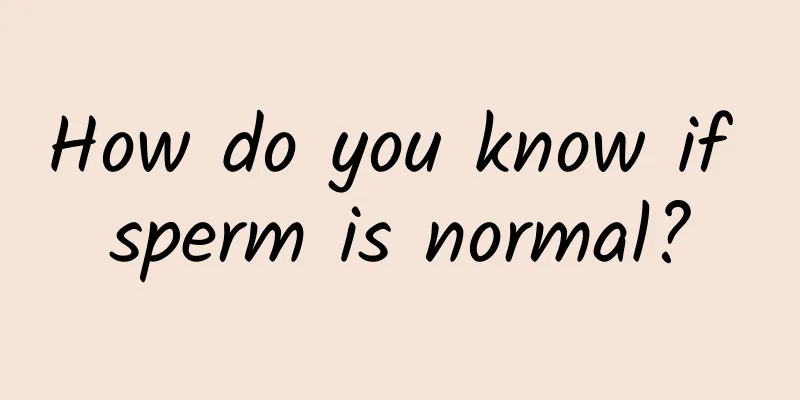Alzheimer's disease treatment

|
Alzheimer's disease is a disease that many elderly people will suffer from. Different diseases will affect our lives and treatments, so when you find symptoms of a disease, you should think about how to treat it, because only when it is discovered earlier will the probability of recovery increase. As we age, both our body and brain will degenerate. Only by taking some measures to prevent rapid degeneration can we prevent Alzheimer's disease. Different diseases require different treatments, because only in this way can we better deal with these diseases and restore our bodies to health. Alzheimer's disease is often encountered in daily life, and generally speaking, its treatment is similar to that of other diseases. So what is the treatment for Alzheimer's? There is no specific treatment for Alzheimer's disease. The current treatment methods are mainly aimed at alleviating the various symptoms, including mental symptoms, that occur during the disease process and delaying the further development of dementia. If the patient becomes agitated and aggressive, antipsychotic drugs may be given for treatment. People with depression can be treated with antidepressants. If the mood is difficult to control with medication or if there is a clear suicidal tendency, modified electroconvulsive therapy can be performed under close observation. Since most patients with Alzheimer's disease have poor physical condition and decreased renal function, it is very easy for drugs to accumulate in the body and produce serious side effects. Therefore, the dosage should be strictly limited. When taking medication, start with a small dose and pay close attention to the patient's response to the medication. The dosage should be limited to 1/3 to 1/2 of the normal adult dose. If the patient's symptoms do not improve after drug treatment, do not blindly add medication. When patients have concurrent psychiatric symptoms, they should be treated actively. Patients with weak constitution and poor appetite should take appropriate vitamin supplements to ensure adequate nutrition and pay attention to water and electrolyte balance. Although the efficacy of drugs that promote brain metabolism (such as Nootropics) is difficult to confirm, they can be tried. Except for a few patients with obvious excitement, agitation, comorbidities, or antisocial behavior who require hospitalization, most patients should be treated in their own homes. For most patients, correct psychotherapy and careful nursing are more important than drug treatment, especially in the early stages of the disease when the condition has not yet fully developed. Although it is impossible to completely restore lost memory, understanding, abstract thinking and other abilities to normal, appropriate psychotherapy can be used to reasonably utilize the remaining brain functions so that the patient's behavior can be maintained at a normal level or within the range permitted by society. To improve or maintain the patient's memory function, the patient can be asked to read the daily newspaper, watch TV, listen to the radio, check the time at the prescribed time, go to the nearby familiar streets to buy items according to the prepared list, and be encouraged to take care of his own life and do some simple housework. If the condition permits, the patient can participate in social activities and do some manual work appropriately. If the patient has disorientation, "orientation therapy" can be implemented, such as posting eye-catching signs on doors or walls or giving simple signals such as time and location to help the patient orient themselves correctly. During treatment, it is forbidden to make arbitrarily changes to the patient's familiar living environment. If the environment is changed, the patient should be given planned training based on the specific conditions, or things in the environment should be repeatedly introduced using concise and clear words and sentences, so that the patient's thoughts and behaviors can adapt to the changes in the environment as quickly as possible. Whether the patient's family cares about the patient and cooperates with the treatment is directly related to the success or failure of the treatment. No one should give up treatment at any time, nor should anyone show disgust or hostility towards the patient. Most of the treatments for Alzheimer's disease can be through medication, but in daily life, if you are older, you can eat some brain-boosting foods, which can effectively increase our memory, which can help us prevent the occurrence of Alzheimer's disease. You can also repeat some of the things you encounter in your daily life frequently or do some regular things. |
<<: What to do if you have coughing and urinary incontinence
>>: Precautions for hypothermia in the elderly
Recommend
Causes of pain in the kidney reflex zone on the soles of the feet
Most people may not know what the reflex zone of ...
What to do if you have kidney stones and blood in your urine
Kidney stones refer to stones that occur at the c...
What to do if your child has diarrhea and vomits
Children's immune systems are very weak, so t...
Cancer cell metastasis
Cancer cells pose a great threat to human health....
Toad grass effects
Toad grass is a plant and also a Chinese herbal m...
Will high prolactin lead to miscarriage?
Prolactin is a very important physiological hormo...
What is the effect of Fuxiang Drink
In response to the multi-element development tren...
Protecting your kidneys can help you live longer
There is a saying in Traditional Chinese Medicine...
What are the symptoms of damp heat in women?
Severe dampness and heat in women is a symptom of...
Can I take cefuroxime while breastfeeding?
Women need to pay special attention to their phys...
Can beer cure hair loss?
Beer is one of the most popular drinks in life, a...
What are the dangers of sleeping with wet hair?
Many people have a bad habit in life, that is, go...
What to do if your nipples are swollen during breastfeeding
The lactation period is a period after childbirth...
Rhinitis causes itchy eyes, prompt treatment is the key
Rhinitis is indeed a very torturous disease. It n...
Symptoms of Tetany
Hand and foot convulsion is a disease caused by m...









